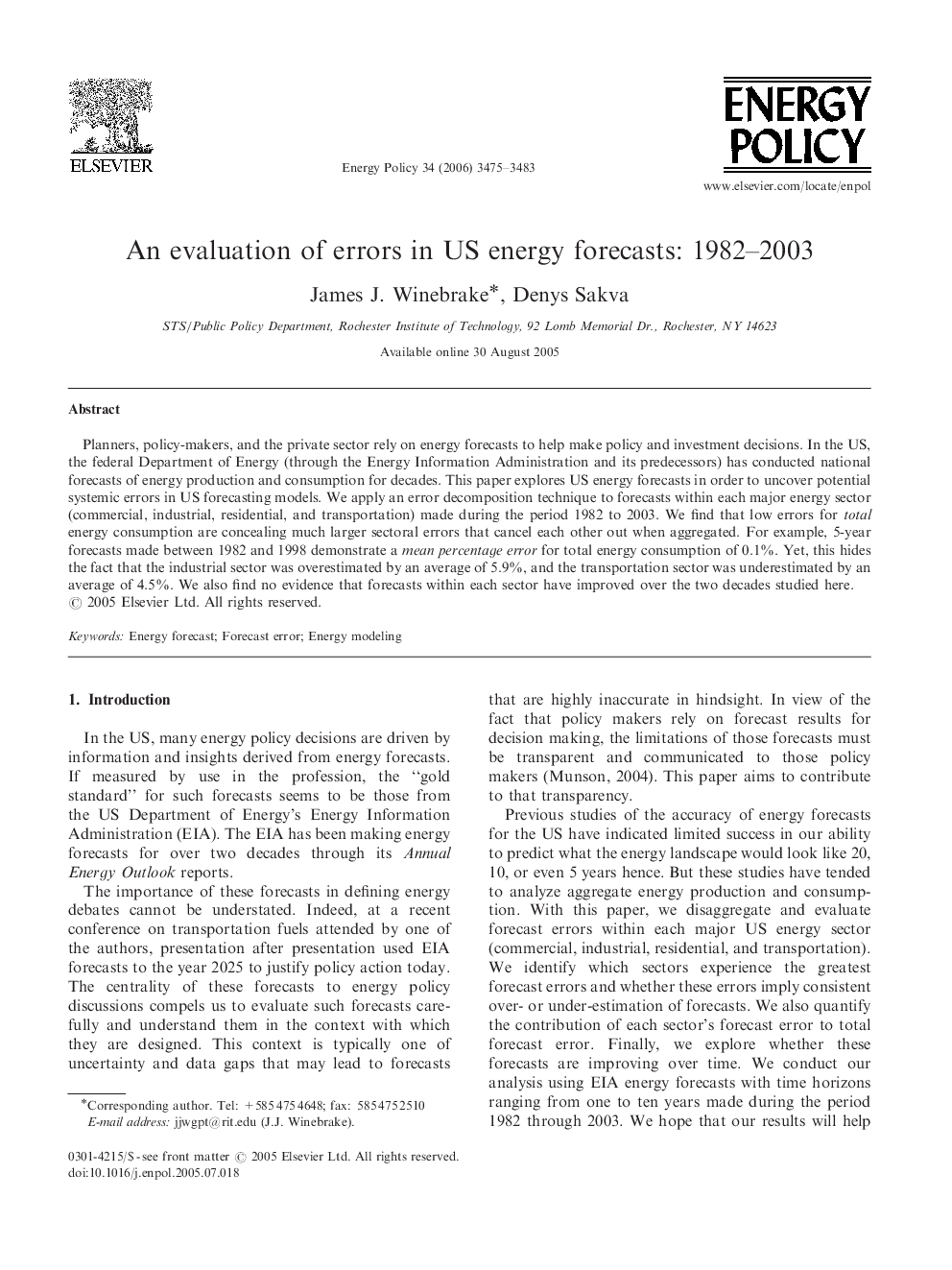| Article ID | Journal | Published Year | Pages | File Type |
|---|---|---|---|---|
| 996829 | Energy Policy | 2006 | 9 Pages |
Planners, policy-makers, and the private sector rely on energy forecasts to help make policy and investment decisions. In the US, the federal Department of Energy (through the Energy Information Administration and its predecessors) has conducted national forecasts of energy production and consumption for decades. This paper explores US energy forecasts in order to uncover potential systemic errors in US forecasting models. We apply an error decomposition technique to forecasts within each major energy sector (commercial, industrial, residential, and transportation) made during the period 1982 to 2003. We find that low errors for total energy consumption are concealing much larger sectoral errors that cancel each other out when aggregated. For example, 5-year forecasts made between 1982 and 1998 demonstrate a mean percentage error for total energy consumption of 0.1%. Yet, this hides the fact that the industrial sector was overestimated by an average of 5.9%, and the transportation sector was underestimated by an average of 4.5%. We also find no evidence that forecasts within each sector have improved over the two decades studied here.
